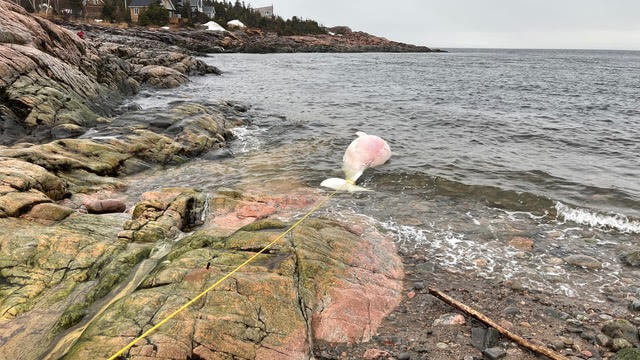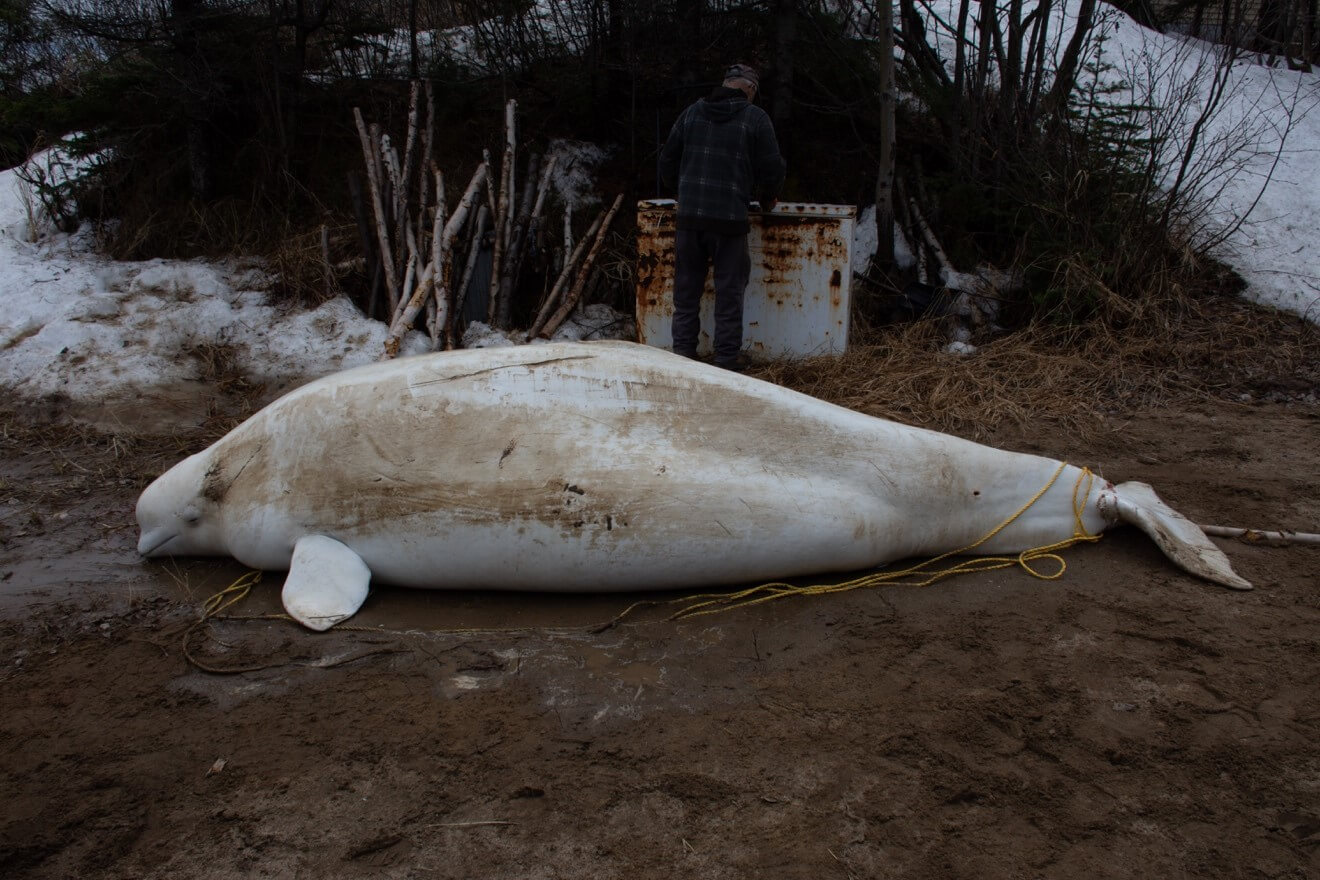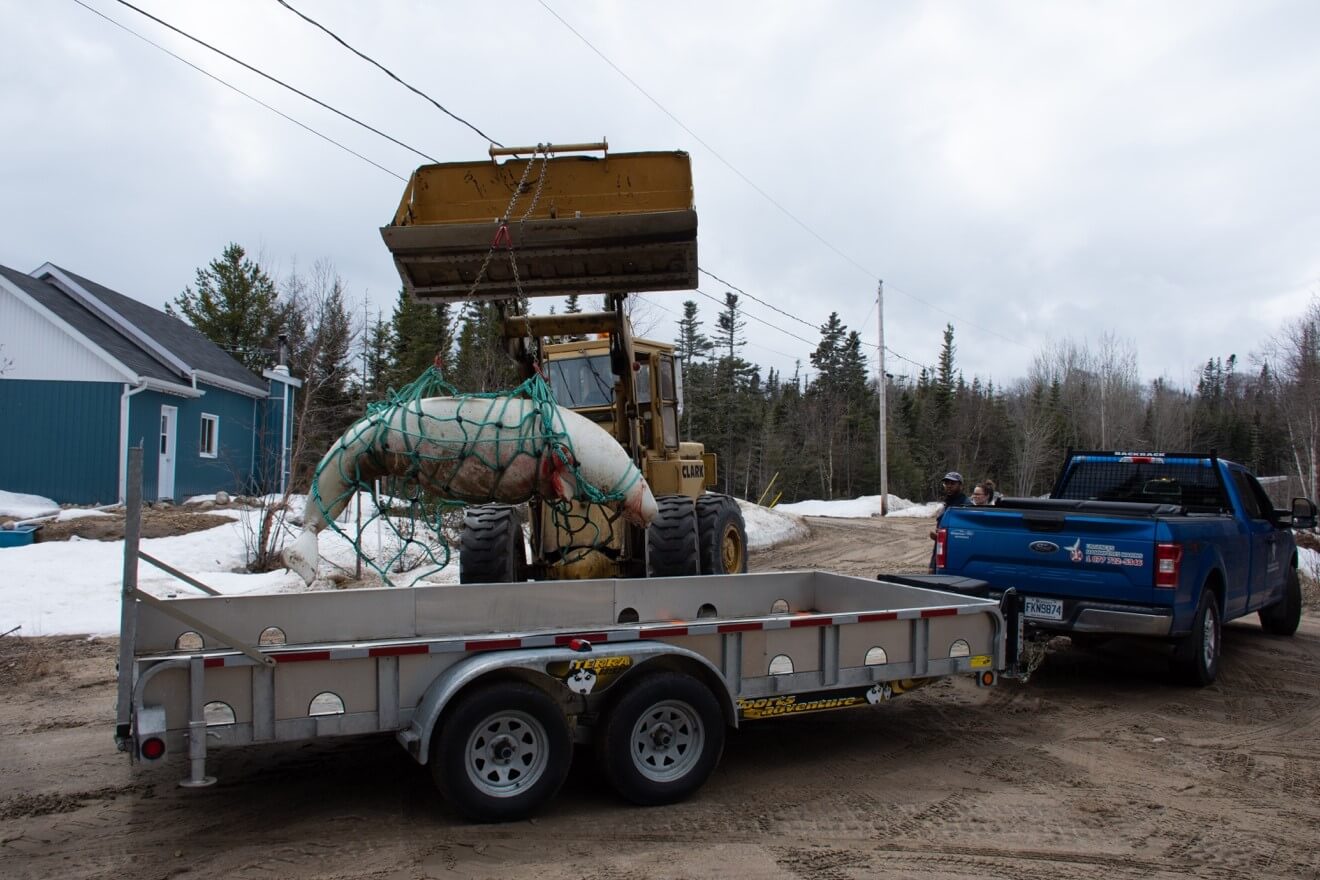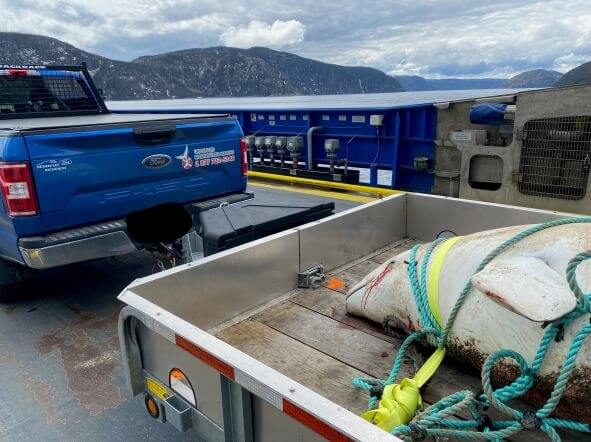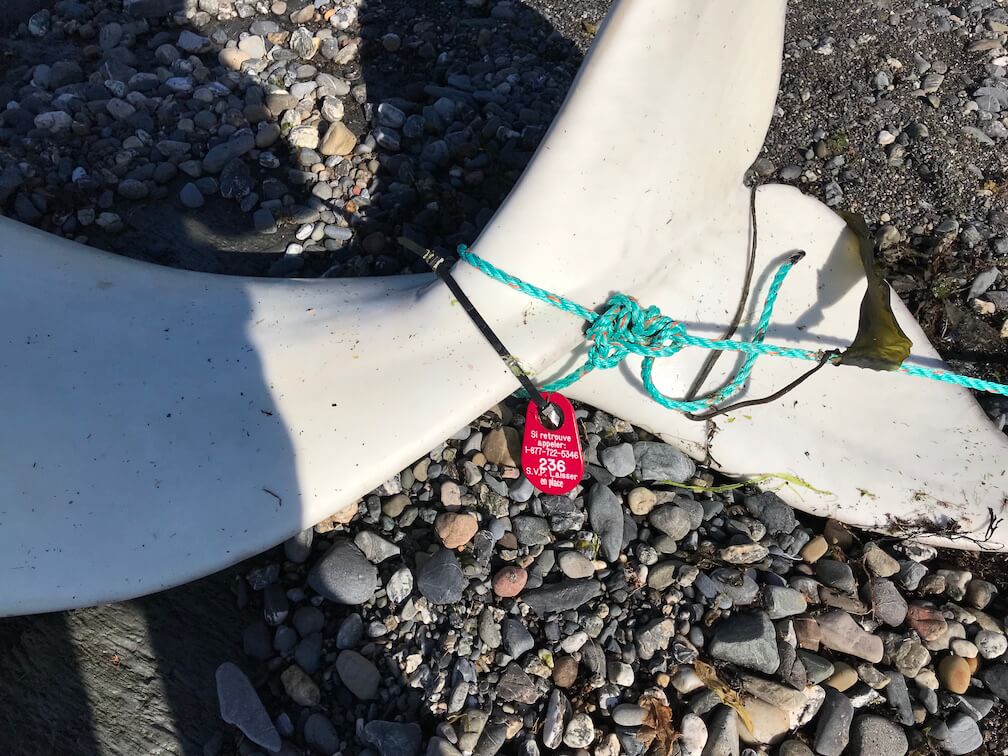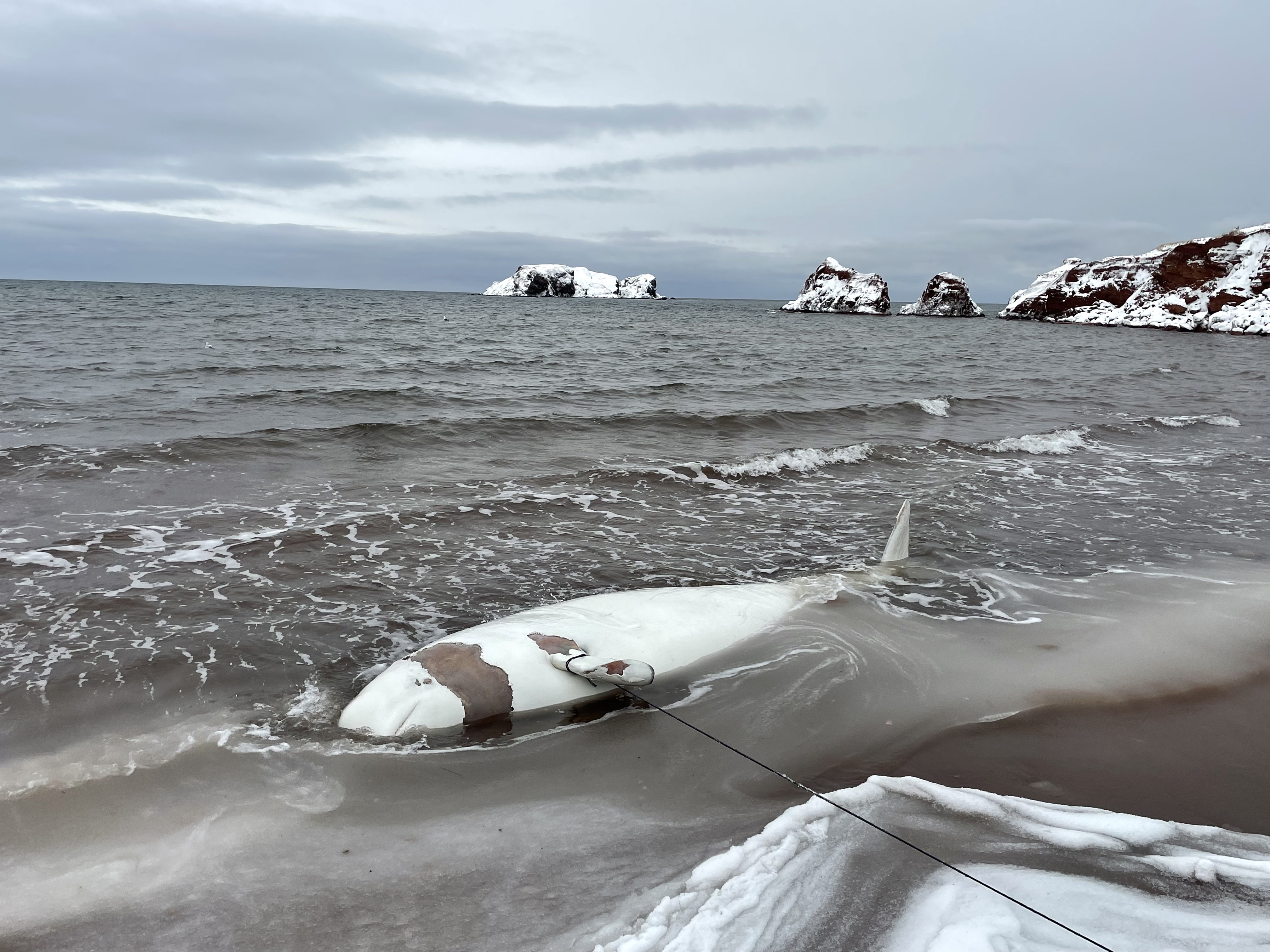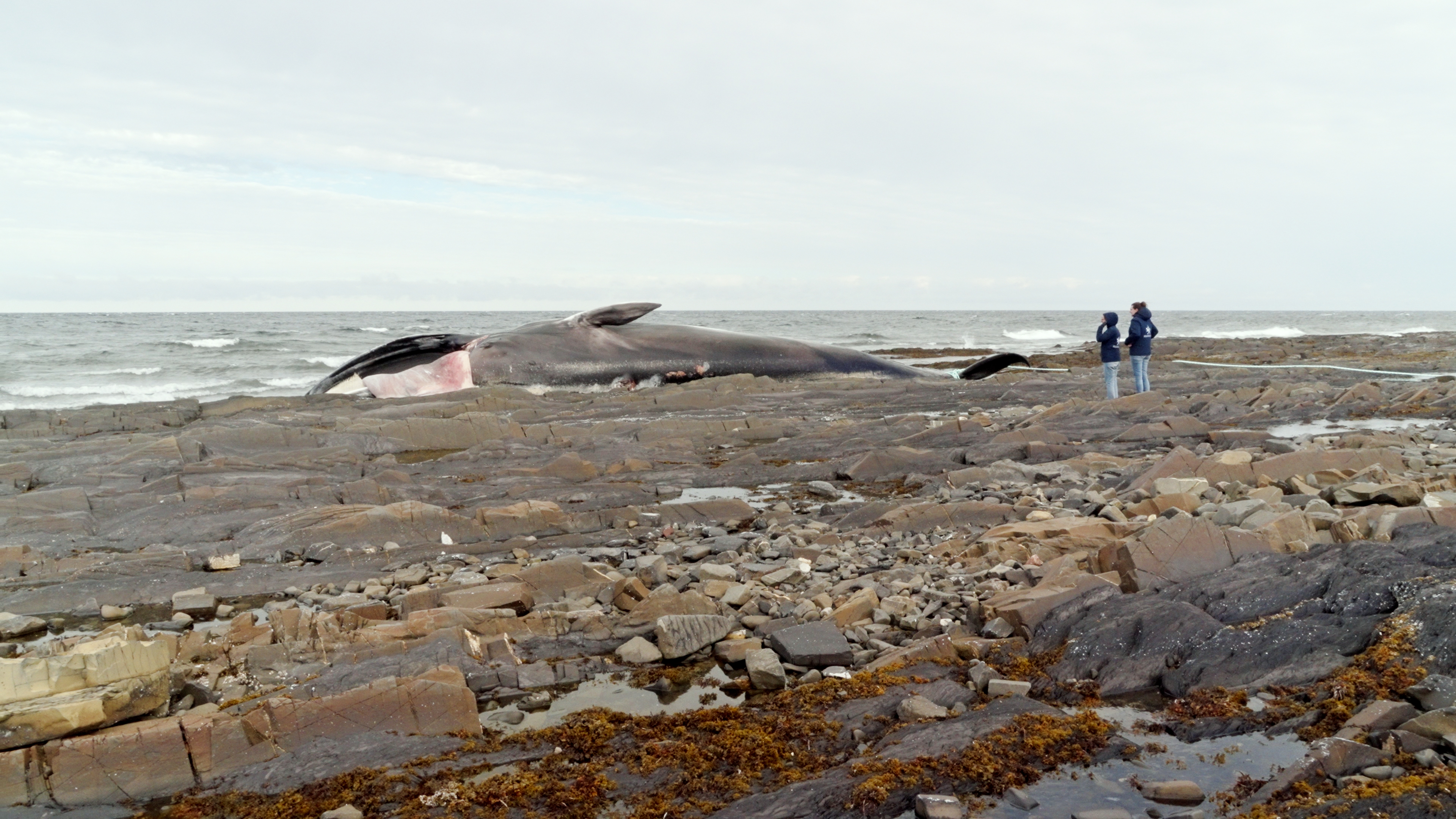This is the first beluga whale carcass recovered for the 2022 season under the carcass recovery program initiated in 1983. This adult female was found stranded on the north shore of the St. Lawrence, near the municipality of Les Escoumins. Because the carcass was in good condition, it was able to be transported to undergo more comprehensive analysis. Last year, 19 carcasses were recovered throughout the season on the shores of the St. Lawrence.
Teamwork
Late in the day on Monday, April 25, a beluga carcass is seen drifting along the coast near Les Escoumins. Taken aback, the witnesses immediately contact the Quebec Marine Mammal Emergency Response Network (QMMERN) to report their observation: the carcass is gently being rocked by the currents, but gradually approaching the coast. A QMMERN volunteer is then contacted at once to document the carcass and secure it in the event that it were to wash ashore. After a few minutes of to-and-fro, the carcass gets close enough to be secured by our volunteer with the help of a few locals.
The following day, the QMMERN mobile team goes on site to document, sample, and potentially recover the carcass if its state of decomposition is not too advanced. Parks Canada employees at the Saguenay-St. Lawrence Marine Park assist the RQUMM team on site. After a telephone exchange with the veterinarian of the Faculty of Veterinary Medicine in Saint-Hyacinthe, Stéphane Lair, the decision is made to tow the animal to the institute in order to perform a necropsy.
Who is this individual?
The beluga that washed ashore is an adult female measuring 3.55 m long. However, the markings on her back were not enough to identify her in GREMM’s catalogue of belugas.
What was the cause of death?
“Whenever a carcass is recovered, a new investigation begins,” explains GREMM Scientific Director Robert Michaud. There are no external clues as to how this beluga died. The carcass was sampled on site and then transported on Tuesday, April 26 to the Faculty of Veterinary Medicine of Saint-Hyacinthe, where it was necropsied that same evening. The circumstances of the animal’s death are still unknown; the results of the necropsy will be available at a later time, once all analyses have been completed.
Every year, between 14 and 20 beluga carcasses are found on the shores of the St. Lawrence. The monitoring program helps characterize the mortalities of this endangered population, in addition to tracking their evolution and identifying their causes.
“We are extremely grateful to those witnesses who call in to report the presence of carcasses. Thanks to them, we are able to recover valuable information on the causes of beluga mortality,” explains Mr. Michaud.
If you spot a dead or vulnerable marine mammal in Quebec, there is only one number to dial: 1-877-722-5346.
Text written in collaboration with Soizic Percevault


